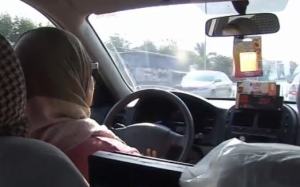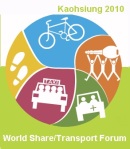Long before automobiles and even science humankind discovered sharing tools, housing,  roads, and wharfs, a natural way to reduce scarce labour and materials. And long before Adam Smith, we used the “profit” from such sharing to develop specialized skills and knowledge, both of which required sharing, and to build shared infrastructure. Now that we face rising prices for resources, thanks to looming shortages and better understanding of “externalities,” we need to face the prospect of putting on the brakes of our rush to individual consumption. Do we do without or do we share in ways that increase, rather than, reduce, our quality of life?
roads, and wharfs, a natural way to reduce scarce labour and materials. And long before Adam Smith, we used the “profit” from such sharing to develop specialized skills and knowledge, both of which required sharing, and to build shared infrastructure. Now that we face rising prices for resources, thanks to looming shortages and better understanding of “externalities,” we need to face the prospect of putting on the brakes of our rush to individual consumption. Do we do without or do we share in ways that increase, rather than, reduce, our quality of life?
Thursday, September 30, 2010
Sharing: Humankind's oldest technology is ready for a comeback
Parks vs. Parking: What do Indian cities need?
Chennai had prepared a plan some years ago for a multi-storey parking deck in T. Nagar where the Panagal Park now stands. T Nagar, once a quiet residential neighbourhood, is now the shopping centre for all of Chennai and has tremendous levels of congestion. The parking plan was called off due to protests by walkers and elderly citizens. I recently got the happy news that a revised plan to build an underground multi-storey parking facility below the Venkatanarayana Road playground also got struck down in the Madras High Court. The court reasoned that the city was lacking in open spaces – which are now considered an integral part of the constitutional right to life. The parcel under consideration is zoned as an open space and has been in use as a playground for more than 60 years. The court found that this activity cannot be disrupted for providing services to motorists who visit this central neighbourhood in the city for shopping.
--> Read on:Wednesday, September 29, 2010
Energy and Equity, Ivan Illich.
Earlier this week I proposed the idea of a group read and commentary on Illich's incisive and important 1974 book "Energy and Equity", but as I thrashed through my  personal library I was unable to lay my hands on what I remember as a small book with a yellow cover. Luckily Jane Voodikon, a Jason Chang Fellow and journalist from Chengdu, came to the rescue with a link to the full text which follows (thanks in turn to clevercycles.com and certainly with the full approval of Illich given the fact that Amazon' best price for the hard cover edition today was $269.21). How do you think these remarks and views stand the test of time? We need to bear in mind the political (Vietnam, Cold War, Allende, 1968, etc.) currents of the time, along with the Oil Crisis, Club of Rome, The Limits of Growth, etc., discussions, concerns and panics of the early seventies. But none of this detracts from the singular vision that this exceptional observer and finest of men has given us.
personal library I was unable to lay my hands on what I remember as a small book with a yellow cover. Luckily Jane Voodikon, a Jason Chang Fellow and journalist from Chengdu, came to the rescue with a link to the full text which follows (thanks in turn to clevercycles.com and certainly with the full approval of Illich given the fact that Amazon' best price for the hard cover edition today was $269.21). How do you think these remarks and views stand the test of time? We need to bear in mind the political (Vietnam, Cold War, Allende, 1968, etc.) currents of the time, along with the Oil Crisis, Club of Rome, The Limits of Growth, etc., discussions, concerns and panics of the early seventies. But none of this detracts from the singular vision that this exceptional observer and finest of men has given us.
So here you have it. The whole thing. Print it out. Mark it up. Share your thoughts. Let me take a single phrase from the book to get the ball rolling: "Participatory democracy postulates low-energy technology. Only participatory democracy creates the conditions for rational technology." (And this almost two decades before the phrase "sustainable development" first appeared on the radar screen. So off we go with Illich as our guide!)
Tuesday, September 28, 2010
On the road with one of Cairo's first female taxi drivers
[caption id="attachment_3848" align="alignright" width="215" caption="Source: BBC News, 27 Sept. 2010"] [/caption]
[/caption]
We cannot of course be sure if you are following all of our web of key themes that together create the bedrock of World Streets, but two of these that are most important to us are (a) the importance of "pattern change" and, of course our old friends will say, (b) the role of women as not just passive passengers in a system designed by and mainly for men, but also active drivers of the changes that we now need to put in place to have mobility systems which are both sustainable and just as well as efficient. With this in view, let's share with you this morning a very short video just in from the BBC in which one of Cairo's new female taxi drivers shares with us some of her views on her job and the attitudes it evokes in the people around on the street.
--> Read on:Monday, September 27, 2010
We have moved
Start here
Welcome to the new home of World Streets, the planet’s only sustainable transport daily newspaper.
 You will come in to our second operating platform for the journal, after a year and a half working with Blogger at http://newmobilityagenda.blogspot.com/. blogger gave us a great starting point, but as we moved ahead we found that it does not have the tight organization and flexibility that is required when we find ourselves trying not only to post interesting articles and useful information day after day, but also to provide a deep resource with considerable content . . . and some handy ways of finding it when you need it. So we shopped around and eventually came up with this WordPress frame which does a much better job, given our particular requirements.
You will come in to our second operating platform for the journal, after a year and a half working with Blogger at http://newmobilityagenda.blogspot.com/. blogger gave us a great starting point, but as we moved ahead we found that it does not have the tight organization and flexibility that is required when we find ourselves trying not only to post interesting articles and useful information day after day, but also to provide a deep resource with considerable content . . . and some handy ways of finding it when you need it. So we shopped around and eventually came up with this WordPress frame which does a much better job, given our particular requirements.With that in view, we would suggest that on your first visit you spend a bit of time working your way across this little top menu, which hopefully explains itself. We also would respectfully propose that you have a good look at the content and links which are organized in the right-most column here. Each of these small devices is intended to help you dig deeply and efficiently into the close to one thousand references and messages that have been logged here since W/S started publication in early 2009. It would be a great pity were this intellectual patrimony to disappear into the ethers.
Please note: This site has two sets of functions. The first is as a daily and weekly journal reporting critically on leading (and lagging) projects and events world-wide. This basically takes up the top half of the site, and includes some handy tools for researching and identifying past articles, signing in to receive handy daily or weekly notifications on articles, monthly archives, .
The lower part of the site provides a series of carefully selected key links and sources (left column, in all close to two hundred, yet to be completed), and a Combined Search Engine (Knoogle) which points to all of them for handy one click screening and reference. The second column provides the reader with a handy place to scan the latest messages and exchanges of a dozen of our New Mobility discussion fora.
. --> Read on:
Sharing: Strategy for a Small Planet
- Keynote address by Eric Britton, Co-Chair of the World Share/Transport Forum, to the first international Share/Transport Conference. Kaohsiung. 16 Sept. 2010
I appreciate this opportunity to share with this distinguished international audience by way of introduction to the presentations and discussions that will now follow a few wo rds on why I think that the concept of more and better sharing of scarce resources of all kinds is an important concept for quality of life for each of us on this small and shrinking planet. And to talk with you as well briefly on why I have come to the conclusion that the transport sector gives us a great place to start both to do a lot more sharing and to learn about why we human beings like, or don't like, the idea of sharing things. Let's start with . . . ourselves.
rds on why I think that the concept of more and better sharing of scarce resources of all kinds is an important concept for quality of life for each of us on this small and shrinking planet. And to talk with you as well briefly on why I have come to the conclusion that the transport sector gives us a great place to start both to do a lot more sharing and to learn about why we human beings like, or don't like, the idea of sharing things. Let's start with . . . ourselves.
Friday, September 24, 2010
Street Talk: Ivan Illich on Sharing in Transport
"The habitual passenger cannot grasp the folly of traffic based overwhelmingly on transport*. His inherited perceptions of space and time and of personal pace have been industrially deformed. He has lost the power to conceive of himself outside the passenger role. Addicted to being carried along, he has lost control over the physical, social, and  psychic powers that reside in man’s feet. The passenger has come to identify territory with the untouchable landscape through which he is rushed. He has become impotent to establish his domain, mark it with his imprint, and assert his sovereignty over it. He has lost confidence in his power to admit others into his presence and to share space consciously with them. He can no longer face the remote by himself. Left on his own, he feels immobile.”
psychic powers that reside in man’s feet. The passenger has come to identify territory with the untouchable landscape through which he is rushed. He has become impotent to establish his domain, mark it with his imprint, and assert his sovereignty over it. He has lost confidence in his power to admit others into his presence and to share space consciously with them. He can no longer face the remote by himself. Left on his own, he feels immobile.”
Ivan Illich in Energy and Equity (Chapter: Speed-stunned imagination)
Wednesday, September 15, 2010
Kaohsiung pause
Our esteemed editor in chief (also the only editor but happily not the only contributor) is tied up for this and most of next week in Kaohsiung for the first meeting of the  World Share/Transport Forum. He has taken the entire staff of World Streets with him, so it will be a bit lights-out on this street for the next few days. Our hope is that you will miss us and in the meantime be thinking about articles, authors, programs, problems, solutions, links and useful tools that we can all share together in these and other good pages. In the meantime come to Kaohsiung with us via www.kaohsiung.sharetransport.org. It will be well worth the trip.
World Share/Transport Forum. He has taken the entire staff of World Streets with him, so it will be a bit lights-out on this street for the next few days. Our hope is that you will miss us and in the meantime be thinking about articles, authors, programs, problems, solutions, links and useful tools that we can all share together in these and other good pages. In the meantime come to Kaohsiung with us via www.kaohsiung.sharetransport.org. It will be well worth the trip.
Friday, September 10, 2010
Cycling as the catalyst for more human and sustainable transport
The interest for a human and sustainable transport is growing in the public and private  sector, at local, national and global level. Our cities and our planet cannot rely on cars for our transport needs, even if they become more energy-efficient or even carbon neutral. We have to create accessibility for people. With current planning and design, roads are isolating people from important destinations. The public domain should be designed with priority for people over motorised traffic. Apart from emission reduction, mobility with zero emission should get value. It is the combination of a human-rights-based orientation with eco-efficiency, that will direct us to a real sustainable transport system.
sector, at local, national and global level. Our cities and our planet cannot rely on cars for our transport needs, even if they become more energy-efficient or even carbon neutral. We have to create accessibility for people. With current planning and design, roads are isolating people from important destinations. The public domain should be designed with priority for people over motorised traffic. Apart from emission reduction, mobility with zero emission should get value. It is the combination of a human-rights-based orientation with eco-efficiency, that will direct us to a real sustainable transport system.
Thursday, September 9, 2010
Kaohsiung 2010 Papers: Will Carsharing Work in China?
Although the interest is increasing, research about carsharing in China is still at a low level. The objective of this paper is to  assess the feasibility for carsharing to work in China, and to find out which city in China is best suited for carsharing to first be tested. Therefore, this paper evaluates current transport background for carsharing in two of China’s major cities, and comparisons were conducted, focusing on: 1) transportation policy which relates to carsharing, 2) geographic features, and 3) demographic characteristics of residents. The main conclusion from this study is that carsharing has a great possibility for development in Beijing and Shanghai . . .
assess the feasibility for carsharing to work in China, and to find out which city in China is best suited for carsharing to first be tested. Therefore, this paper evaluates current transport background for carsharing in two of China’s major cities, and comparisons were conducted, focusing on: 1) transportation policy which relates to carsharing, 2) geographic features, and 3) demographic characteristics of residents. The main conclusion from this study is that carsharing has a great possibility for development in Beijing and Shanghai . . . 
Wednesday, September 8, 2010
Who read World Streets this morning?
 World Streets makes the claim that it is a truly international journal and world-wide collaborative effort. That's an easy claim to make, but just to put some muscle on it here is a map showing the points of origin of the readers who have come in thus far this morning. A day pretty much like any other.
World Streets makes the claim that it is a truly international journal and world-wide collaborative effort. That's an easy claim to make, but just to put some muscle on it here is a map showing the points of origin of the readers who have come in thus far this morning. A day pretty much like any other.
Tuesday, September 7, 2010
Kaohsiung 2010 Papers. Sharing/Strategy for a Small Planet. Part I
 After many decades of a single dominant city-shaping transportation pattern - i.e., for those who could afford it: owning and driving our own cars, trucks, motorcycles and bicycles, getting into taxis by ourselves, riding in streets that are designed for cars and not much else -- there is considerable evidence accumulating that we have already entered into a world of new mobility practices that are changing the transportation and city landscape in many ways. It has to do with sharing, as opposed to outright ownership. But strange to say, this trend seems to have escaped the attention of the policymakers in many of the institutions directly concerned.
After many decades of a single dominant city-shaping transportation pattern - i.e., for those who could afford it: owning and driving our own cars, trucks, motorcycles and bicycles, getting into taxis by ourselves, riding in streets that are designed for cars and not much else -- there is considerable evidence accumulating that we have already entered into a world of new mobility practices that are changing the transportation and city landscape in many ways. It has to do with sharing, as opposed to outright ownership. But strange to say, this trend seems to have escaped the attention of the policymakers in many of the institutions directly concerned.
Monday, September 6, 2010
Kaohsiung 2010 Papers: Employer Share/Transport
Rory McMullan, Project Administrator of this year's Kaohsiung conference, is one o f the keynote speakers in the session which is reporting on ride/sharing as a tool for affordable and fair sustainable transport in and around our cities world-wide. In this presentation he undertakes to introduce a range of employer share/transport services for larger pubic sector and industrial employers in Taiwan.
f the keynote speakers in the session which is reporting on ride/sharing as a tool for affordable and fair sustainable transport in and around our cities world-wide. In this presentation he undertakes to introduce a range of employer share/transport services for larger pubic sector and industrial employers in Taiwan.
Saturday, September 4, 2010
No need for speed
As our regular readers know well, World/Streets believes that there are a lot of excellent reasons for slowing down. And every time we run into  something that we think can help advance this worthy objective, well here we are. This time the irrepressible Elizabeth Press, peripatetic videographer from New York City's StreetFilms project, got on a plane and made a short film about what happens when cities slow down their traffic in a uniform and substantial way – in this case the terrific UK program " 20’s Plenty for Us". Her five-minute film went on-line yesterday.
something that we think can help advance this worthy objective, well here we are. This time the irrepressible Elizabeth Press, peripatetic videographer from New York City's StreetFilms project, got on a plane and made a short film about what happens when cities slow down their traffic in a uniform and substantial way – in this case the terrific UK program " 20’s Plenty for Us". Her five-minute film went on-line yesterday.
Friday, September 3, 2010
Kaohsiung 2010 Papers: Thoughts on Share/Transport from Chengdu, China
This essay has been contributed by one of the 2010 Jason Chang International Fello ws, Jane Voodikon, who introduces herself as follows: "Since my interest in transportation and planning is purely personal - I have no professional background in any transportation-related field - I hope to walk away from Kaohsiung 2010 with a more informed picture of transportation possibilities and the goals and objectives related sectors should be working toward." - Jane Voodikon, Concerned person and editor. Los Angeles and Chengdu, China.
ws, Jane Voodikon, who introduces herself as follows: "Since my interest in transportation and planning is purely personal - I have no professional background in any transportation-related field - I hope to walk away from Kaohsiung 2010 with a more informed picture of transportation possibilities and the goals and objectives related sectors should be working toward." - Jane Voodikon, Concerned person and editor. Los Angeles and Chengdu, China.
Kaohsiung 2010 Papers: Are streets meant for travel alone?
This essay contests the idea that streets are for travel alone by critically examining the logic and language employed by the elite to delegitimize two marginalized groups using streets for non-travel purposes: hawkers and pavement-dwellers. Further, court cases interpreting constitutional guarantees in the context of hawkers and pavement-dwellers are examined. Based on these discussions, an attempt is made to provide an alternative framework for the governance of streets, in which streets are seen essentially as shared commons whose use is subject to democratic decision-making based on shared goals of society.
--> Read on:Kaohsiung 2010 Papers: Share/Transport in India - Threats, Challenges, Opportunities
Sharing is an inherently natural process of establishing a joint use of resources It is a primarily self-initiated and regulated process. In this regard share transport can be seen as an informal, unregulated or loosely regulated, low-cost (even works on micro credit, when loose change is unavailable to complete the transaction), small or medium scale sharing of transport infrastructure (such as roads, streets and spaces) and/or vehicles in time and/or space. Sharing of Transport in this format, across the Indian Sub-continent and indeed many other developing countries in South-East Asia, has always been a part of the informal public transport network and is mostly as old as the city itself.
--> Read on:Thursday, September 2, 2010
Kaohsiung 2010 Papers: On ride-sharing and efficiency
When I was at university the only way I could afford to get home was to share a  car with someone. I set up a notice board in the student union to help me find a lift home. The notice board quickly became popular and every weekend there were lots of people offering and seeking lifts.
car with someone. I set up a notice board in the student union to help me find a lift home. The notice board quickly became popular and every weekend there were lots of people offering and seeking lifts.
Wednesday, September 1, 2010
Kaohsiung 2010 Papers: Making ridesharing easy
 As I sat in traffic on Auckland's North-Western motorway, all alone in my cocoon, I could see that others were doing the same. Looking across, I could see each person, alone in their car, and I wondered if they might be heading to the same place as me?
As I sat in traffic on Auckland's North-Western motorway, all alone in my cocoon, I could see that others were doing the same. Looking across, I could see each person, alone in their car, and I wondered if they might be heading to the same place as me?
What Transportation And Public Health Can Learn From Each Other About Changing Public Behaviors
Which of the following is more likely to get you to drive slower down a street? Or to get the majority of car drivers on that street to slow down?
• A long talk with a friend about the dangers of speeding to  yourself and others.
yourself and others.
• A newly posted sign announcing a lower speed limit.
• A stop sign placed in the middle of the block.
• A series of speed bumps along the road.



